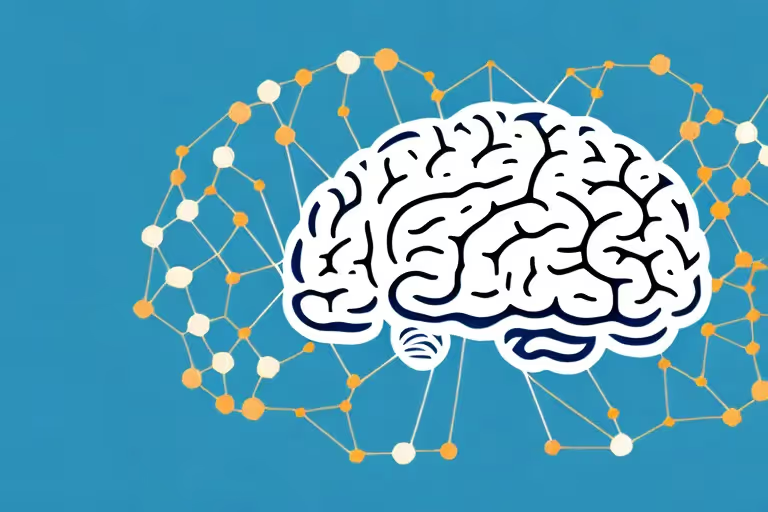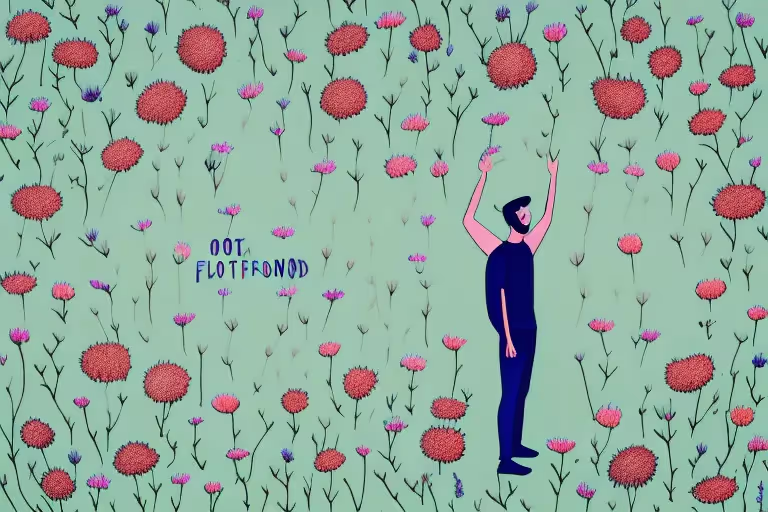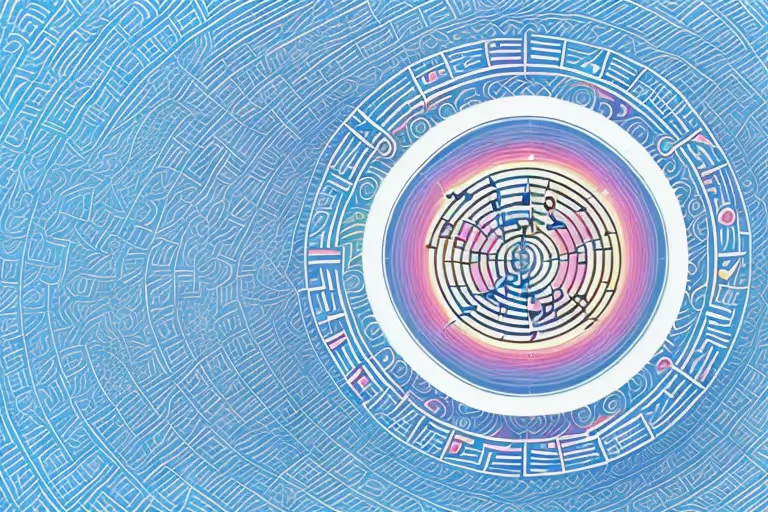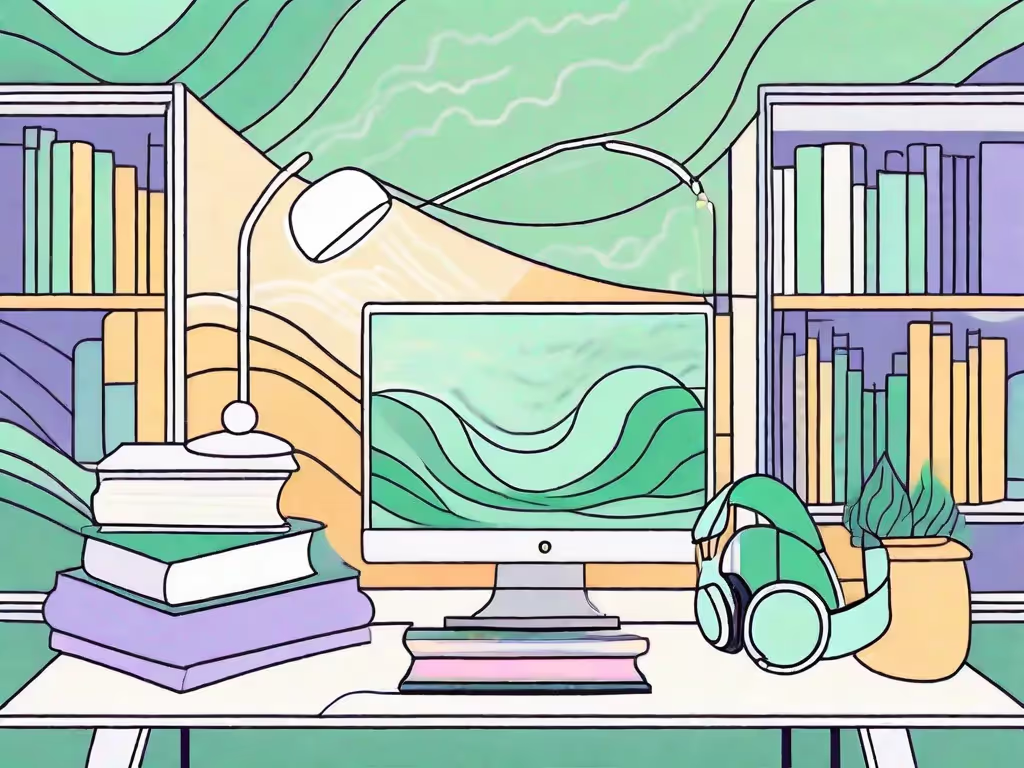Virtual Reality (VR) is revolutionizing various industries, and one area where it is making a significant impact is meditation. VR Meditation combines the power of technology with the calming practice of mindfulness, providing a unique and immersive experience for relaxation and self-discovery. In this article, we will explore the concept of VR Meditation, the science behind it, the benefits it offers, and different types of VR Meditation techniques. Additionally, we will discuss how to choose the right VR Meditation app for your individual needs.
Understanding Virtual Reality (VR) Meditation
VR Meditation is a technological advancement that takes traditional meditation practices to a whole new level. By using VR headsets, individuals are transported to realistic virtual environments that help them disconnect from the outside world and focus on their inner selves. This immersive experience allows for a deeper state of relaxation and mindfulness.
In today's fast-paced and digitally connected world, finding moments of peace and tranquility can be a challenge. Traditional meditation practices have long been recognized for their ability to calm the mind and reduce stress. However, VR Meditation takes this concept to a whole new level by incorporating cutting-edge technology.
Imagine being able to escape to a serene beach, where the sound of waves crashing against the shore and the warm sun on your skin create a sense of calm and tranquility. With VR Meditation, this becomes a reality. The virtual environments are designed to be incredibly realistic, engaging all of your senses and transporting you to a different world.
The Concept of VR Meditation
VR Meditation utilizes virtual environments to create a serene and peaceful atmosphere. These environments can range from tranquil nature scenes to serene beaches or even cosmic landscapes. By immersing oneself in these virtual worlds, individuals can escape their daily stressors and engage in a focused meditation practice.
One of the key benefits of VR Meditation is the ability to customize the virtual environment to suit individual preferences. Whether you prefer the tranquility of a forest or the vastness of outer space, there is a virtual world that can cater to your needs. This customization allows for a more personalized and immersive experience, enhancing the overall effectiveness of the meditation practice.
Furthermore, VR Meditation offers a unique opportunity to explore different cultures and traditions. With the ability to transport yourself to ancient temples or sacred landscapes, you can learn about and experience various meditation techniques from around the world. This exposure to different practices can broaden your understanding of meditation and deepen your own practice.
The Science Behind VR Meditation
Research has shown that VR Meditation elicits a relaxation response in the body similar to traditional meditation techniques. Studies have indicated that this immersive experience can reduce stress and anxiety, regulate heart rate, and even improve cognitive performance. The combination of visual and auditory stimuli in VR Meditation aids in achieving a state of deep relaxation.
When immersed in a virtual environment, the brain responds by releasing endorphins and other feel-good chemicals, promoting a sense of calm and well-being. The visual and auditory cues in the virtual world help to redirect the focus of the mind, allowing for a deeper level of concentration and mindfulness.
Additionally, VR Meditation provides a safe and controlled environment for individuals with anxiety or phobias. By gradually exposing themselves to their fears in a virtual setting, individuals can work through their anxieties in a controlled and supportive manner. This therapeutic aspect of VR Meditation has shown promising results in the treatment of various mental health conditions.
As technology continues to advance, the possibilities for VR Meditation are endless. From guided meditation sessions led by renowned teachers to interactive experiences that promote self-reflection and personal growth, VR Meditation has the potential to revolutionize the way we approach our mental well-being.
The Intersection of Technology and Mindfulness
On the other hand, some purists argue that technology and mindfulness are contradictory concepts. However, VR Meditation presents an innovative approach to combining the benefits of both worlds.
VR and Mindfulness: A New Approach
VR technologies provide a unique opportunity to engage the senses and enhance the practice of mindfulness. By immersing oneself in a virtual environment, individuals can engage their visual and auditory senses, making their meditation practice more engaging and effective. This new approach allows for a deeper connection with oneself and the present moment.
Imagine stepping into a virtual forest, surrounded by towering trees and the gentle sound of a babbling brook. As you sit down on a virtual cushion, you can feel the softness beneath you. The sunlight filters through the leaves, casting a warm glow on your face. You take a deep breath, inhaling the scent of fresh pine. With each breath, you feel more grounded and connected to nature.
As you close your eyes, the sounds of birds chirping and leaves rustling become more pronounced. You can almost feel the gentle breeze brushing against your skin. With each passing moment, you become more present, more aware of the sensations within and around you.
The Role of Technology in Meditation
Despite that, technology has played a significant role in meditation practices throughout history. From Tibetan singing bowls to meditation apps, technology has been used to enhance the meditation experience. VR Meditation is simply a natural progression in this evolution, allowing individuals to fully immerse themselves without the distractions of the outside world.
Technology has always been a tool for human advancement, and meditation is no exception. In ancient times, monks used various instruments, such as singing bowls, to create soothing sounds that aid in meditation. These instruments were carefully crafted to produce specific frequencies that induce a state of relaxation and focus.
In the modern era, meditation apps have gained popularity, offering guided meditations and ambient sounds to help individuals find their inner calm. These apps provide a convenient way to incorporate meditation into our daily lives, regardless of our busy schedules.
With the advent of VR Meditation, technology takes us to a whole new level of immersion. No longer confined to the limitations of physical spaces, we can now explore serene landscapes, ancient temples, and even imaginary realms, all within the comfort of our own homes. The possibilities are endless, and the potential for personal growth and self-discovery is immense.
As technology continues to evolve, so does our understanding and practice of mindfulness. VR Meditation is just one example of how we can harness the power of technology to deepen our connection with ourselves and the world around us. It is a testament to the human capacity for innovation and our innate desire to seek balance and harmony in our lives.
Benefits of VR Meditation
VR Meditation offers a range of benefits that can positively impact both physical and mental well-being. Let's explore some of these benefits.
Physical Health Benefits
One of the physical benefits of VR Meditation is stress reduction. The immersive experience helps individuals relax their bodies and release tension. Additionally, studies have shown that VR Meditation can reduce blood pressure and improve cardiovascular function. It can also aid in pain management and promote better sleep patterns.
Mental Health Benefits
Mentally, VR Meditation provides a much-needed break from the daily hustle and bustle. It allows individuals to disconnect from technology and connect with their inner selves. This practice has been shown to alleviate symptoms of anxiety, depression, and PTSD. Moreover, VR Meditation can improve focus and concentration, as well as increase self-awareness and emotional regulation.
Different Types of VR Meditation Techniques
There are various types of VR Meditation techniques to cater to different preferences and goals. Let's explore two of the most popular approaches.
Guided VR Meditation
In guided VR Meditation, individuals follow along with a virtual guide who provides instructions and prompts for their meditation practice. This approach is suitable for beginners or those who prefer structured sessions. The virtual guide helps individuals stay focused and guides them through different meditation techniques and exercises.
Self-Directed VR Meditation
In self-directed VR Meditation, individuals have more autonomy over their practice. They can choose their virtual environment, duration of the session, and meditation style. This approach appeals to those who prefer a more flexible and personalized meditation experience. Self-directed VR Meditation allows individuals to explore different mindfulness techniques on their own.
In conclusion, VR Meditation is a powerful tool for immersive relaxation and mindfulness. By combining technology and meditation, individuals can experience a deeper sense of calm and self-awareness. Whether you choose guided VR Meditation or prefer a self-directed approach, apps such as Aura, can enhance your meditation practice and bring you closer to a state of inner peace.
Aura is Your All In One App for Meditation, Mindfulness Wellbeing
Find peace every day with one app for your whole well-being. There is no one-size-fits-all solution to mental well-being. Aura is the first all-in-one wellness app that learns how to best help you. Discover an endless library of expert-created tracks for your well-being, all taught by the world’s best coaches, therapists, and storytellers. With Aura's personalized recommendations, you can find peace every morning, day and night.



.webp)





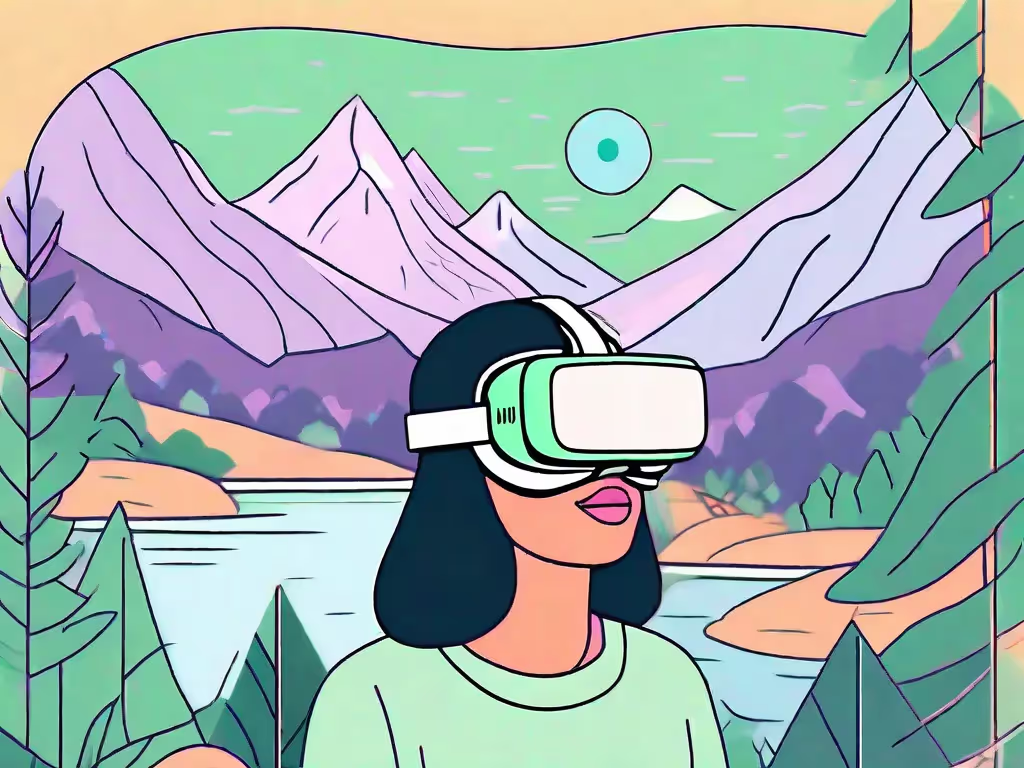
.avif)

%20(1).avif)


.avif)
.avif)
.webp)


.avif)


















































































































.avif)

















.svg)

